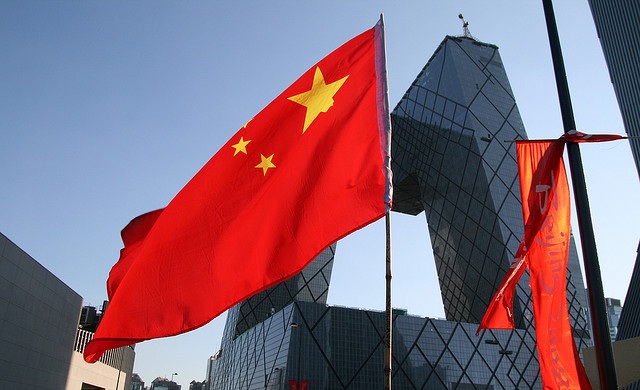Those were the words of Zhang Ke of the Chinese accounting firm ShineWing as he told reporters that local government debt in the country is “out of control.”

Mr. Zhang said that ShineWing “audited some local government bond issues and found them very dangerous, so we pulled out. Most don’t have strong debt servicing abilities. Things could become very serious.” (emphasis ours)
Within the last week both Fitch and Moody’s have reduced their ratings for China, the first time that the country has suffered a rating cut since 1999. Fitch dropped China’s long-term currency credit rating from AA-minus to A-plus. Moody’s outlook was slashed from “positive” to “stable.” Slower-than-expected growth in the last two quarters has not only prompted the rating cuts, but has raised the specter of a potential financial collapse of the Chinese economy that could have a more serious impact on the entire global economy than the U.S. sub-prime lending fiasco did in 2008.
Moody’s said that “Chinese authorities have not done enough to reduce the risks associated with local government contingent liabilities.”
Without strong debt-servicing capabilities, the $3 trillion USD collective debt of the Chinese local and central governments is going to be a tough nut to crack. Moody’s rating for Chinese government bonds remains at Aa3 and is not expected to increase for at least the next year to 18 months.
The government responded this morning by promising to reduce the risks of the rising debt. Referring to “the next phase” of its economic plan, the government said that it will focus on “actively expanding effective domestic demand,” whilst Premier Li Keqiang, China’s top chief economic officer declared that the less than anticipate first quarter growth was “reasonable.” The International Monetary Fund and Mr. Zhang would beg to differ.
Mr. Zhang said, “It is already out of control. A crisis is possible, but since the debt is being rolled over and is long-term, the timing of its explosion is uncertain.”
Following the 2008 global financial crisis, combined with their own economic slowdown (which, in itself is adding to the world-wide burden), the government increased its investment in public works projects similar to what the U.S. did with President Obama’s recovery plan. This move by the Chinese caused them to take their focus off of trying to increase consumer spending. Now the government will likely revise its spending on expanding welfare entitlements with the intention of freeing up discretionary public spending. The growth of the Chinese economy has been, by and large, based on trade and investment without adequate attention to developing a self-sustaining model.
It is an interesting fact that local governments are banned from directly raising debt, so they have circumvented the system by using special purpose vehicles to fund infrastructure projects. However, as is usually the case, those projects generated lackluster returns. The only thing that the local governments can do to pay back the debt is to issue more debt. That will eventually lead to a very bad place.
Mr. Zhang explained that “China has more than 2,800 counties. If every county issued debt, it could lead to a crisis (that) could be even bigger that the U.S. housing crisis.” Addressing ShineWing’s reason for pulling out of the local funding schemes, he said, “When the time comes, it won’t be the government that assumes responsibility. It will be the accounting firms and the banks that do.”
You can put that quote right up there alongside any of Confucius’.


 Hot Features
Hot Features













